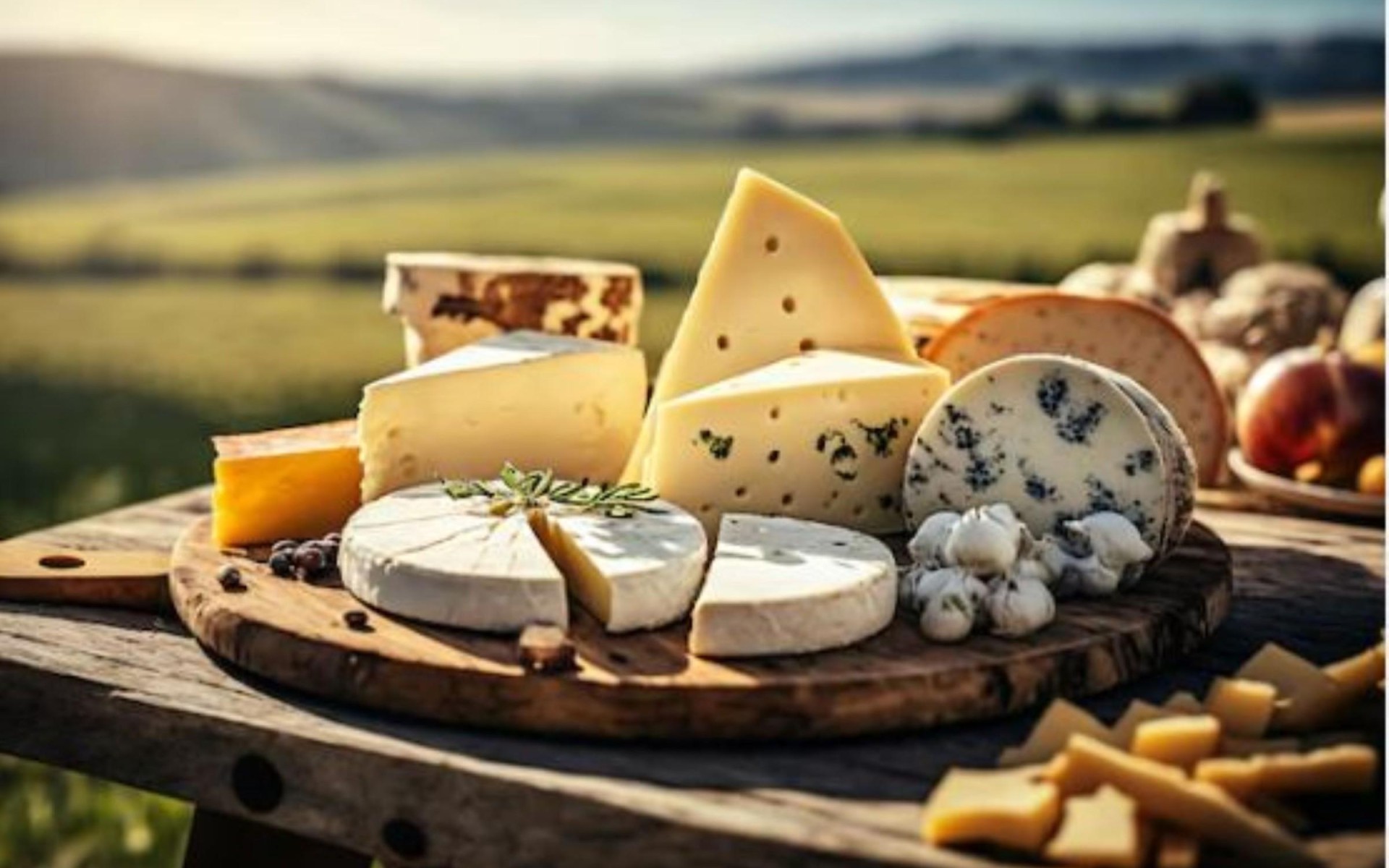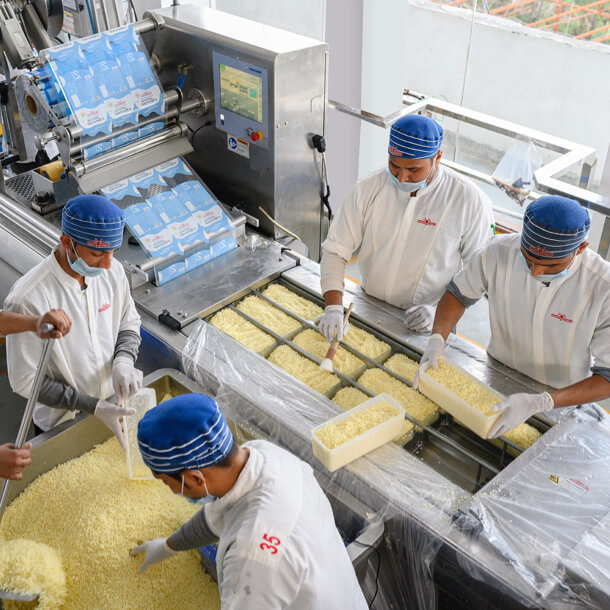Explore the Leading Cheese Factory Melbourne for Fresh Creations
Explore the Leading Cheese Factory Melbourne for Fresh Creations
Blog Article
An Extensive Consider Cheese Manufacturing: Ingredients, Techniques, and the Future of Artisan Cheeses
The intricate process of cheese manufacturing is an interesting convergence of art and scientific research, where top notch milk, rennet, and particular bacterial cultures serve as fundamental aspects. As the industry significantly focuses on sustainability and transparency, the future of artisan cheeses guarantees to mirror both heritage and progress.
Trick Ingredients in Cheese Production
A range of essential active ingredients play an essential role in cheese production, each adding to the end product's flavor, structure, and personality. The key active ingredient in cheese is milk, which can come from numerous sources, including cows, goats, and sheep - cheese for sale online. The kind of milk made use of substantially influences the cheese's preference and consistency; for example, cow's milk normally generates creamier cheeses, while goat's milk typically creates tasty selections
One more crucial component is rennet, an enzyme made use of to curdle the milk, dividing it into curds and whey. The resource of rennet can be animal, vegetable, or microbial, each imparting distinctive features to the cheese. Cultures, consisting of certain pressures of bacteria, are also indispensable to the cheese-making process. They ferment lactose into lactic acid, aiding in taste growth and texture.
Salt not just enhances the flavor yet additionally functions as a preservative, inhibiting the development of unwanted bacteria. Additionally, numerous flavoring representatives, such as natural herbs, spices, or also smoked timber, can be contributed to develop one-of-a-kind artisanal cheeses. Together, these ingredients create the structure of cheese production, setting the phase for varied and abundant cheese selections.
Traditional Cheese-Making Techniques
Utilizing traditional cheese-making techniques, craftsmens worldwide protect time-honored methods that have actually been given via generations. These techniques typically highlight the use of high-grade, in your area sourced milk, which is main to the special flavors and textures of artisanal cheeses. The procedure typically begins with the mindful heating of milk, adhered to by the addition of societies and rennet to facilitate coagulation.
When the curds develop, they are reduced, permitting whey to drain pipes, an important step that affects moisture content and texture. Salting is a necessary aspect of this process, improving flavor while also acting as a preservative.
Aging, or affinage, is one more essential element, during which cheeses create their characteristic fragrances and preferences. Artisans may use certain aging atmospheres, using moisture and temperature level controls to refine the cheese's account. The dedication to these traditional methods not just supports regional economic climates but likewise adds to the abundant diversity of cheese varieties found globally, commemorating social heritage and artisanal craftsmanship.
Modern Technologies in Cheese Production
Exactly how have technical developments changed cheese production in recent times? The combination of modern-day technology has actually reinvented both the performance and quality of cheese manufacturing. Automation in different stages of the procedure-- from curd development to product packaging-- has improved consistency while minimizing labor costs. Automated curd reducing and stirring systems allow for precise control over texture and moisture degrees, critical factors influencing the last item.
Furthermore, developments in microbiology have made it possible for cheesemakers to choose details microbial societies and enzymes, enhancing taste profiles and enhancing service life. Making use of sensor innovation for keeping track of fermentation problems has actually additionally come to be widespread, permitting real-time modifications to keep ideal environments for cheese aging.

These innovations not only improve the high quality and sustainability of cheese manufacturing but additionally encourage artisan manufacturers to keep traditional flavors while embracing modern performance. As technology remains to progress, the future of cheese production looks encouraging, blending practice with development.
The Role of Terroir in Cheese
In the realm of cheese manufacturing, terroir plays a pivotal role in defining the distinctive qualities of numerous cheeses. Terroir, a French term commonly connected with a glass of wine, includes the ecological elements that influence farming products, consisting of soil structure, environment, and local vegetation and fauna. In cheese-making, the unique attributes of the region where the milk is sourced content can impart details tastes and textures to the final product.
For example, the grazing conditions of milk animals significantly influence the milk's structure, influenced by the types of turfs and herbs readily available in a specific place. This differs not just between countries however additionally between areas within the exact same country. Additionally, look at this now the microbial neighborhoods present in the setting contribute to the fermentation processes, causing diverse profiles in taste and scent.
Cheeses such as Roquefort, Parmigiano-Reggiano, and Cheddar exemplify just how terroir can shape their identities, making them distinctive and usually shielded by geographical indicators. As producers increasingly identify the significance of terroir, there is a growing focus on sourcing local components and preserving typical techniques, ensuring that each cheese really mirrors its origin.

Future Trends in Artisan Cheeses
A noteworthy change is happening in the artisan cheese field, driven by advancing customer choices and technological innovations. Progressively, customers are inclining one-of-a-kind, top quality items that stress both sustainability and local sourcing - cheese factory melbourne. This trend is triggering artisan cheesemakers to innovate, focusing on small-batch production and making use of typical strategies while integrating modern-day innovation to enhance high quality and safety and security
Moreover, there is a growing rate of interest in plant-based and alternative dairy items, pushing conventional cheesemakers to discover new methods, such as cashew or almond-based cheeses. This change not just deals with nutritional limitations but cheese factory melbourne also straightens with environmental concerns regarding pet farming.
Additionally, transparency in sourcing and production procedures is becoming paramount. Customers are a lot more enlightened and demand traceability, triggering producers to adopt clearer labeling methods and engage in narration that highlights their methods and values.
Verdict
To conclude, the complex process of cheese production fuses standard strategies with modern developments, causing a diverse selection of tastes and structures. The emphasis on top notch ingredients and the influence of terroir underscore the creativity associated with cheese production. As the sector develops, a focus on sustainability and openness will likely shape the future of artisan cheeses, accommodating a significantly critical customer base that values credibility and craftsmanship in milk items.
Report this page